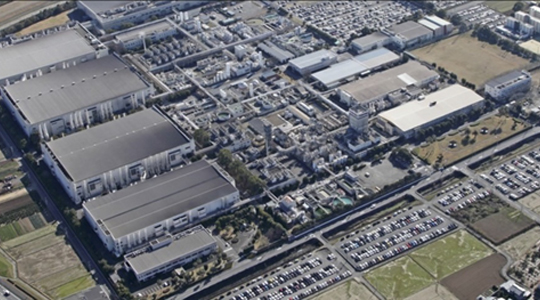Japan Semiconductor Co. , Ltd. (hereafter referred to as Japan Semiconductor) Oita Operations, a group company of Toshiba Electronic Devices & Storage Corporation , is pleased to announce that the Energy Conservation Center, Japan, “2022 (Reiwa 4) Energy Conservation Grand Prize” (supported by Ministry of Economy, Trade and Industry) Energy Conservation Center Chairman’s Award.
The Energy Conservation Grand Prize recognizes excellent energy conservation initiatives that have been implemented by business operators and workplaces as a model for others, as well as products and business models that are excellent in energy conservation. The purpose is to contribute to the construction of an energy-saving society through the spread of products.
As a Japanese semiconductor manufacturing company, Japan Semiconductor has continued to manufacture high-performance semiconductors for 50 years, with a focus on “Made in Japan” in a rapidly changing global competitive environment. We evaluate the impact on the environment, including biodiversity, in all of our business processes, set environmental goals for reducing environmental impact and preventing pollution, and work together to implement proactive environmental measures. increase. This time, the company’s Oita Works received the Energy Conservation Center Chairman’s Award in the Energy Conservation Case Category, in recognition of its energy-saving activities through the optimization of the steam supply within the office.
Japan Semiconductor will continue to practice environmentally conscious corporate management from the perspective of the life cycle in all business processes, from procurement to manufacturing and disposal. We will contribute to its realization.
Initiative theme: Energy-saving activities by optimizing steam supply within the plant, The Oita plant manufactures analog semiconductors for automobiles and uses 80,241 kiloliters of crude oil equivalent energy per year. Factory. Electricity accounts for more than 90% of the energy used, so until now we have mainly focused on energy-saving efforts to reduce electricity consumption. worked hard.
Specifically, we will review the steam supply system between buildings within the office to minimize heat loss, and use a water tube boiler together with a newly installed small once-through boiler based on a more precise forecast of steam demand within the office. and optimization of steam supply pressure.
As a result of these efforts, we were able to reduce city gas consumption by 520 kiloliters/year in crude oil equivalent (9.1% compared to before).












